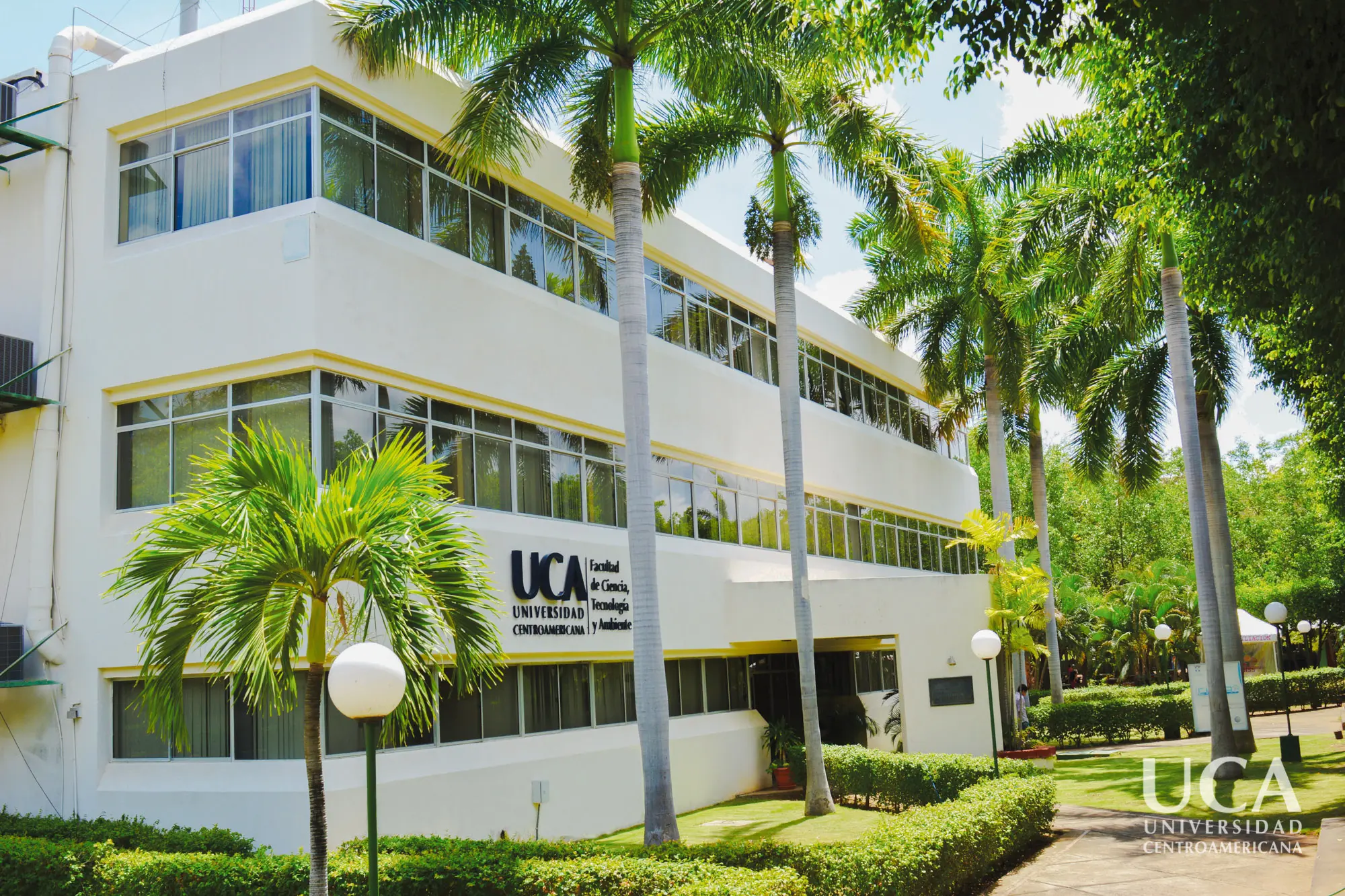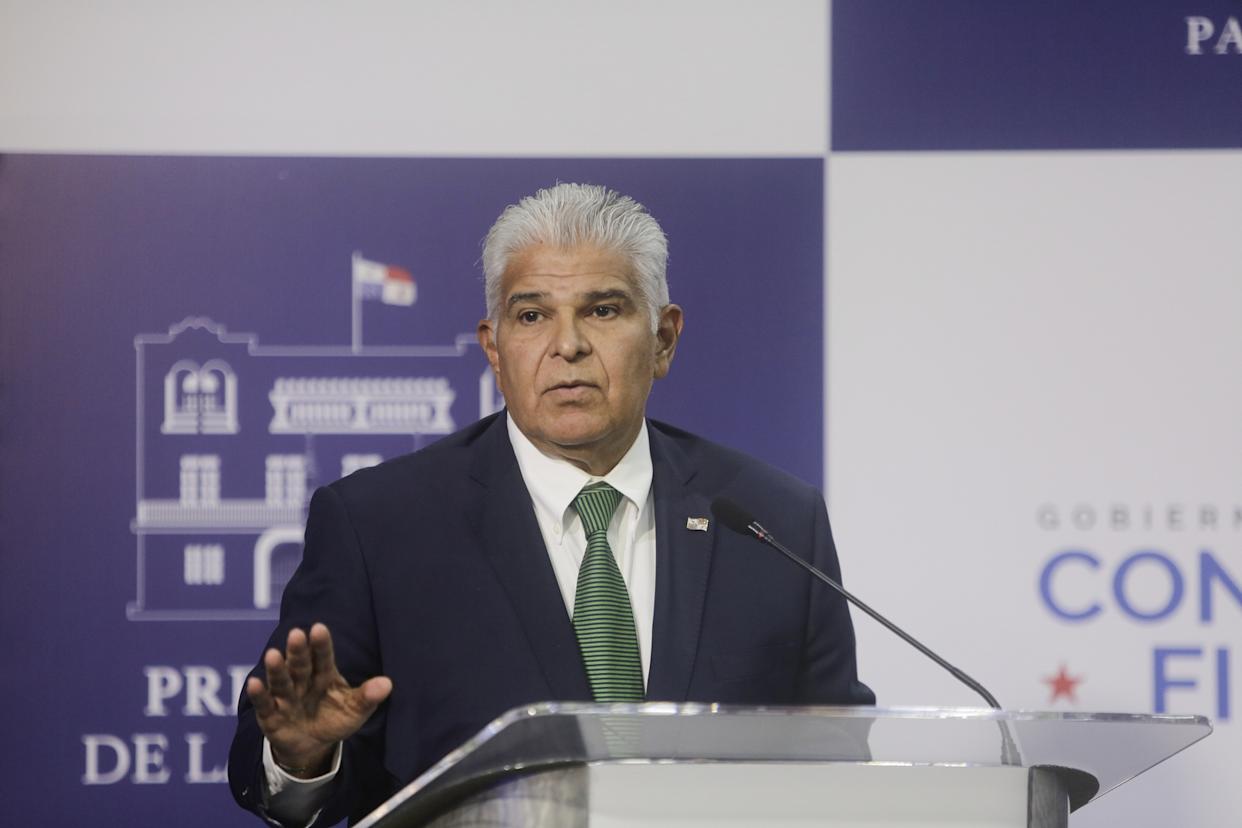Central America
Nicaraguan government seizes assets of one of the country’s most prestigious Jesuit universities

August 17|
The Nicaraguan Justice, controlled by the government presided by Daniel Ortega, ordered the Jesuit Central American University (UCA), one of the most prestigious private study centers in the country, to transfer its movable and immovable assets, as well as its bank accounts, to the State of Nicaragua, the educational institution informed on Wednesday.
The UCA, founded in 1960, confirmed through an email to the educational community and shared with EFE, that on Tuesday, at 17:29 hours (23:29 GMT), they received an official notice from Judge Gloria María Saavedra, head of the Tenth Criminal District Court of Hearings Managua District, notifying them of this and other measures.
In the official notice, the Jesuit university was notified of “the seizure of real estate, furniture, money in national or foreign currency from the immobilized bank accounts, financial products in national or foreign currency property of the UCA”, according to the letter.
The judge also ordered “that the seizure of all the goods described in the previous point be in favor of the State of Nicaragua, which will guarantee the continuity of all educational programs”.
Likewise, the judge sent notices to the Public Registry of Real Estate and Commercial Property, to the Superintendence of Banks, to the National Directorate of Registries, to the National Police and to the Attorney General’s Office of the Republic, “for the purposes of their charges”.
“The above measures are taken in correspondence to unfounded accusations that the Central American University functioned as a center of terrorism, organizing criminal groups,” explained the university.
“In the face of all this, the UCA reiterates its commitment to Nicaraguan society for a high quality higher education and faithful to its founding principles for 63 years,” it added.
He also thanked “the trust, solidarity and closeness expressed by students, teachers, administrative staff and the Nicaraguan society that identifies with the principles and values of this Alma Mater”.
In view of this official letter, the Jesuit university, whose rector is the priest Rolando Enrique Alvarado López, decided to suspend as of today “all academic and administrative activities, until it is possible to resume them in an ordinary manner, which will be informed through the official communication channels of the University”.
Last week, Nicaraguan authorities froze the bank accounts of the Jesuit university and immobilized its properties, amidst the friction between the Ortega government and the Nicaraguan Catholic Church.
On the other hand, the Directorate of Alternative Dispute Resolution (Dirac), attached to the Supreme Court of Justice, revoked last Monday the accreditation of the Mediation Center of the UCA, four months after the same entity renewed its accreditation.
In March 2022, Nicaraguan authorities excluded the UCA from the 6% constitutional allocation that universities receive annually.
In September of the same year, UCA Vice Rector Jorge Huete was banned from entering the country after a work trip to Argentina.
Former UCA rector José Alberto Idiáquez, who participated in a dialogue that sought to overcome the crisis Nicaragua has been going through since April 2018, was also unable to return to the country in July 2022, after traveling to Mexico to attend to health problems.
The Jesuit university was the scene of dozens of marches against the Ortega government, in the context of the crisis that Nicaragua has been going through since April 2018.
Also on May 30, 2018, it opened its doors to thousands of students who sought refuge after participating in a massive opposition march in Managua, called “The mother of all marches”, which ended bathed in blood, just after Ortega sentenced in a speech to his followers that “Nicaragua belongs to all of us and here we all stay”.
It also hosted the exhibition “Ama y no Olvida: Museo de la Memoria contra la Impunidad”, promoted by the Asociación de Madres de Abril (AMA), which seeks to remember those killed during the anti-government demonstrations in Nicaragua.
Nicaragua has been going through a political and social crisis since April 2018, which has been accentuated after the controversial general elections of November 7, 2021, in which Ortega was reelected for a fifth term with his main contenders in prison.
Sports
Shakira ignites El Salvador with near sold-out residency at Mágico González Stadium

The recently renovated Jorge “Mágico” González Stadium is rolling out the red carpet for Colombian superstar Shakira, whose string of concerts has sold out almost entirely, confirming the powerful bond between the artist and Salvadoran fans.
The scale of the experience begins as soon as attendees arrive at the venue. Outside the stadium, organizers have installed several photo spots so concertgoers can capture a souvenir from the major event.
Fans attending the Las Mujeres Ya No Lloran World Tour will witness a top-tier visual production, where technology and robotic lighting effects will shape an atmosphere that shifts dramatically from one segment of the show to another — moving from the intensity of ’90s rock to the festive explosion of urban pop.
Security and crowd management have been top priorities, with a coordinated operation aimed at ensuring smooth entry and exit, allowing spectators to focus solely on enjoying hits that have defined generations.
Beyond the music, the event marks a milestone for the country’s live-entertainment industry, positioning El Salvador as a destination capable of hosting artist residencies once reserved for cities such as Las Vegas or London.
The excitement is already visible across the capital: hotels are at full capacity and local businesses are riding the wave of enthusiasm sparked by the latest songs from the Colombian star.
Central America
Salvadoran fans plan birthday surprise for Shakira at historic show

The president of Shakira’s Fan Club in El Salvador was interviewed by Diario El Salvador on Saturday as she made her way to her entrance gate at Jorge “Mágico” González Stadium, ahead of the historic concert the Colombian superstar is set to perform in the country.
Before the first of the five shows that make up Shakira’s Salvadoran residency, the fan leader revealed that supporters had prepared a special surprise for the singer, who turned 49 on February 2.
“Today I’m here around the stadium with the props we made for her celebration, with postcards and her songs. We also have kits ready to sing ‘happy birthday’ to our She Wolf,” she said.
She explained that the group used social media to ask fans seated in the Ultra Platinum and Platinum sections to find them and pick up birthday pennants, party headbands, balloons and whistles. The idea is to sing “happy birthday” while Shakira introduces her band, offering what they describe as a special Central American welcome.
“For me, she has been a megastar since the first time I saw her in 1996. I saw her again in 2006, here at the stadium. Last year we traveled to Colombia three times to see her, and today I’m beyond excited that she chose El Salvador,” the fan said.
She added that visitors from across Central America and other countries have traveled for the concerts and will also have the opportunity to discover the country. “I’m very excited about everything she makes us feel,” she said.
Central America
Panama Will Not Be Threatened, President Says Amid Rising Tensions With China

Panamanian President José Raúl Mulino warned on Thursday that his country “will not allow itself to be threatened,” while expressing hope that tensions with China will ease following the cancellation of a contract allowing a Hong Kong-based company to operate ports along the Panama Canal.
Earlier this week, China, through its Hong Kong and Macao Affairs Office, said Panama would pay “a high price” for annulling the concession that has allowed a subsidiary of CK Hutchison Holdings to manage two ports on the interoceanic waterway since 1997.
The decision has angered Beijing, which, according to Bloomberg, has urged its state-owned companies to suspend negotiations on new projects with the Central American country.
“Panama is a dignified country and will not allow itself to be threatened by any nation on Earth,” Mulino said during a press conference when asked about China’s warnings.
However, the president added that he hopes the situation will not escalate. “I hope this does not spiral further; there is no reason for it to do so,” he said.
The ruling by Panama’s Supreme Court came amid pressure from U.S. President Donald Trump, who has threatened to reclaim the Panama Canal—built by the United States—arguing that it is “under Beijing’s control.”
China’s Foreign Ministry spokesperson Lin Jian warned on Wednesday that Beijing “will firmly defend the legitimate and lawful rights and interests of Chinese companies.”
-

 International4 days ago
International4 days agoEpstein Denies Being ‘the Devil’ in Newly Released Video Interview
-

 International5 days ago
International5 days agoSpain Seeks to Ban Social Media Access for Children Under 16
-

 International4 days ago
International4 days agoDelcy Rodríguez Takes Control of Chavismo as Venezuela Enters a U.S.-Supervised Transition
-

 International5 days ago
International5 days agoPetro Resumes Extraditions, Sends Top Criminal to U.S. Before White House Talks
-

 International5 days ago
International5 days agoMexico to Send Humanitarian Aid to Cuba Amid U.S. Threats Over Oil Shipments
-

 International4 days ago
International4 days agoHRW Warns Trump’s Influence Has Weakened Human Rights in Latin America
-

 International4 days ago
International4 days agoHypothermia Linked to Most Deaths During New York’s Recent Cold Spell
-

 International5 days ago
International5 days agoMexico Arrests Suspect in Shooting of Sinaloa Lawmakers
-

 Central America2 days ago
Central America2 days agoPanama Will Not Be Threatened, President Says Amid Rising Tensions With China
-

 International2 days ago
International2 days agoDíaz-Canel Calls for Talks With Washington Without Pressure as U.S. Tightens Oil Sanctions
-

 International2 days ago
International2 days agoVenezuela Debates Broad Amnesty Law Covering 27 Years of Chavismo
-

 International1 day ago
International1 day agoColombia to Send High-Level Delegation to Ecuador to Ease Trade Tensions
-

 Central America5 days ago
Central America5 days agoLaura Fernández Says She Will ‘Never’ Allow Authoritarianism in Costa Rica
-

 Central America2 days ago
Central America2 days agoBukele’s Approval Rating Climbs to 91.9% in El Salvador, Survey Shows
-

 Central America7 hours ago
Central America7 hours agoSalvadoran fans plan birthday surprise for Shakira at historic show
-

 International5 days ago
International5 days agoNFL Investigating Emails Linking Giants Executive to Jeffrey Epstein
-

 Sports4 hours ago
Sports4 hours agoShakira ignites El Salvador with near sold-out residency at Mágico González Stadium
-

 International1 day ago
International1 day agoSuper Bowl Halftime Show Puts Bad Bunny—and Immigration Politics—Back in the Spotlight


























